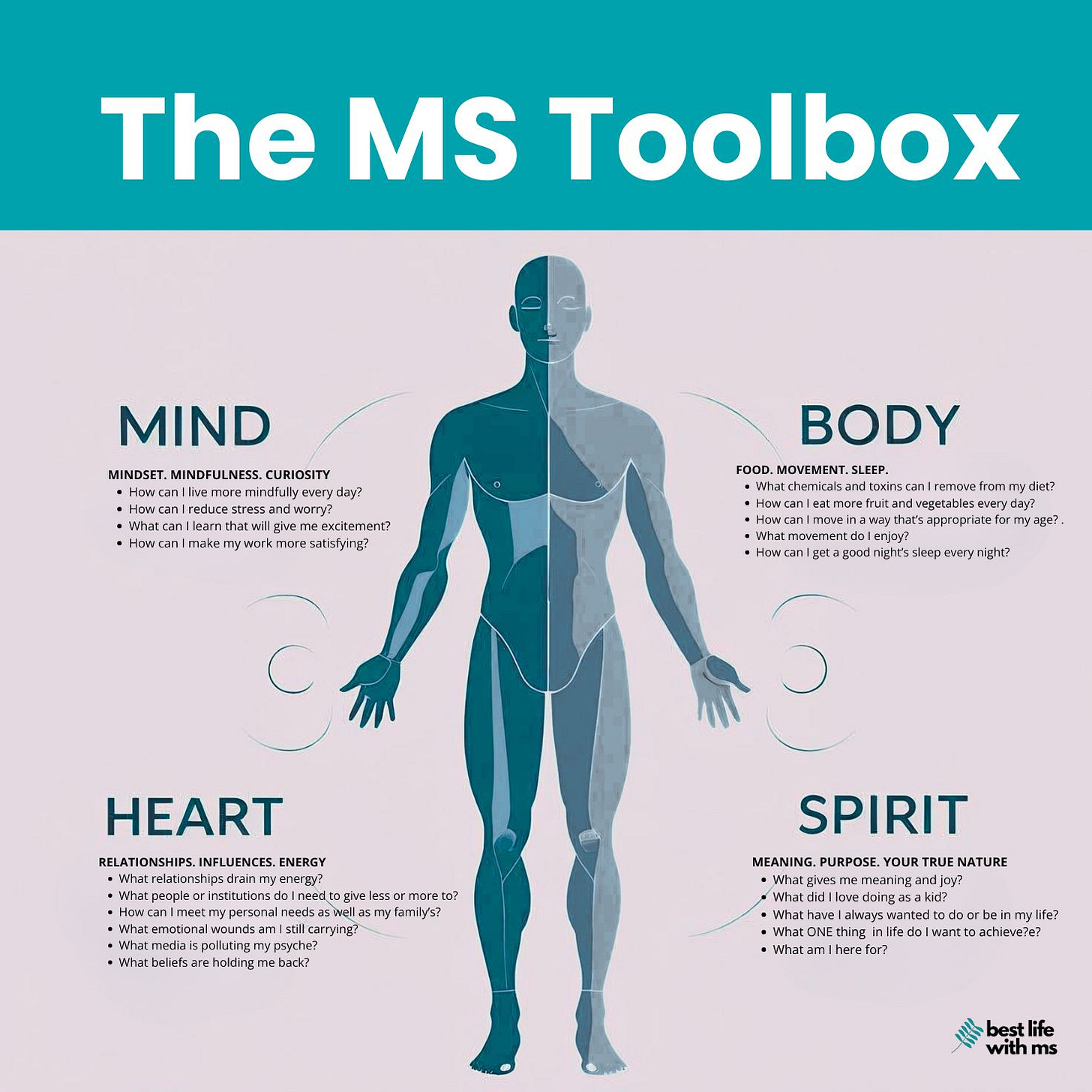
This article was originally published on 11 June 2025 at Best Life with MS
The answers are out there, you just need the right questions
Sitting on a beige plastic seat attached to four others, fiddling with my phone, trying to look nonchalant.
Soon, they’ll call my name. I’ll walk into that consulting room, not as ‘me,’ but as a collection of symptoms. I’ll be assessed and scored, like a piggy going to market.
But they’ll miss who I am. They’ll just look on the surface, at my body, and miss the human being with a mind, a heart, aspirations, ambition, world experience, a spirit.
So, what questions could they be asking if they take a whole-person centred?
Let’s turn the mirror and ask them for ourselves?
BODY
The body compartments are food, exercise, and sleep.
What chemicals and toxins can I remove from my diet?
How can I eat more fruit and vegetables every day?
How can I move in a way that’s appropriate for my age? For example, the weights and cardio workouts are fine if you’re in your twenties. They’re not right if you’re in your 40s, 50s, 60s, or 70s.
What movement do I enjoy?
How can I get a good night’s sleep every night?
MIND
Mental health, mindset, mindfulness, curiosity, flow states.
How can I live more mindfully every day?
How can I reduce stress and worry?
What can I learn that will give me excitement?
How can I make my work more satisfying?
HEART
Relationships, emotions, and stress, healing old wounds, shedding and nurturing healthy relationships, and unhelpful beliefs.
What relationships drain my energy?
What people or institutions do I need to give less or more to?
How can I meet my personal needs as well as my family’s?
What emotional wounds am I still carrying?
What beliefs are holding me back?
SPIRIT
Staying connected to the essential You. Using your strengths, talents, and joys.
What gives me meaning and joy?
What did I love doing as a kid?
What have I always wanted to do or be in my life?
What am I here for?
Answering these questions can be enhanced by being in nature. A day at the beach, in the mountains, looking in rockpools, under a tree, or in the desert can do wonders for self-exploration.
MS has no reliable prognosis
Multiple sclerosis is an immune-mediated chronic neurodegenerative disease. There’s no known cure but also no prognosis. That should give you hope. People with MS can end up in a wheelchair or running marathons. The difference is in the choices we make — our lifestyle.
Yes, there is a genetic factor. The main gene is HLA-DRB1. This gene acts like a display stand, showing foreign invader proteins (peptides) to the T-cells to trigger the immune attack. I believe it’s doing the best it can with the information it’s been given. It’s trying to protect us. It’s a case of mistaken identity. Our body is striving to be healthy.
Everything we can learn about our disease can empower us to stop the attacks, calm the inflammation, and start repairing some of the damage. MS affects every part of us. We can also use every part of us to help.
I hope the MS Toolbox is helpful to you. Feel free to modify some of the questions to suit you, or ask different ones.
Download the MS Toolbox in high resolution.




